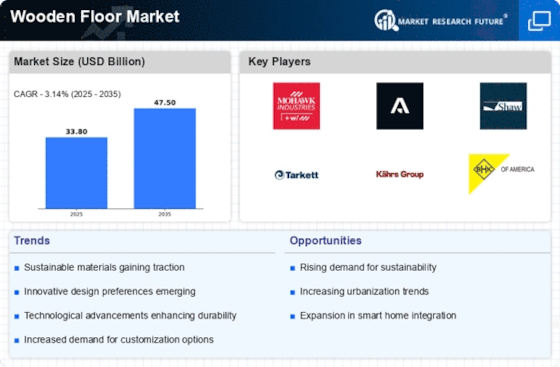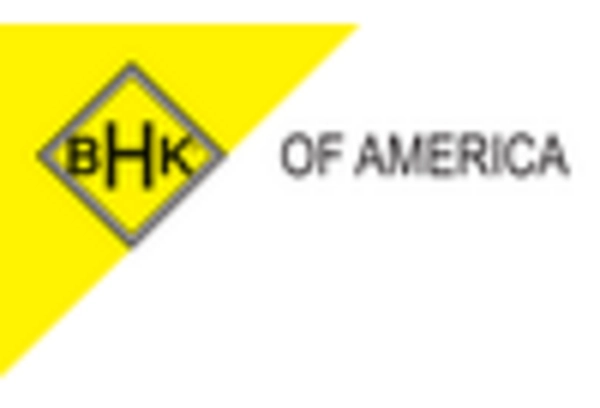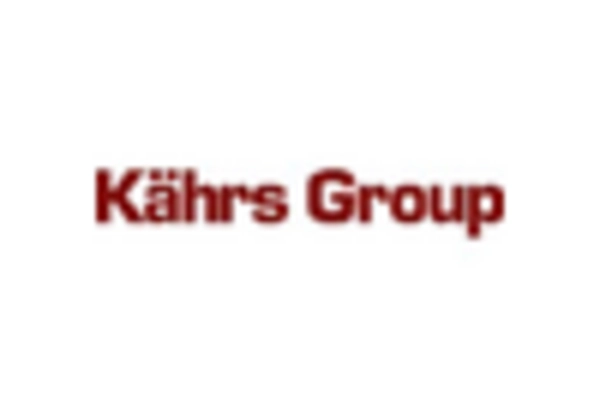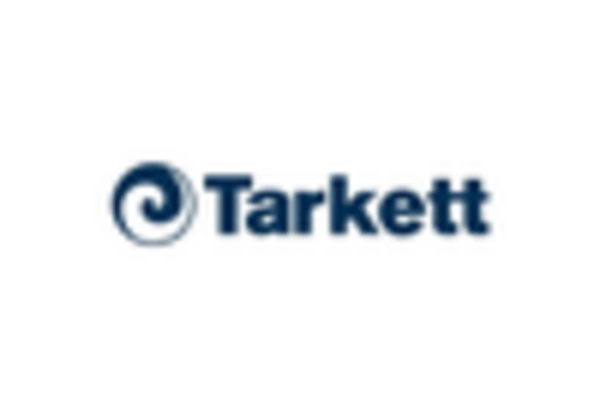Market Analysis
In-depth Analysis of Wooden Floor Market Industry Landscape
Several factors influence the development and trends of wooden flooring market. Changes in customers’ preferences drive market dynamics. As lives change, interior design tastes also change, with many individuals preferring oak floors that bring out elegance and warmth. Additionally, market dynamics depend on the economic situation. In periods of economic prosperity, people spend more money on home improvement including flooring thereby increasing demand for hardwood floors.
Further worldwide ecological concerns have had an impact on the wooden floor industry. Timber flooring from sustainably managed forests is being driven by sustainable and eco-friendly practices. Producers are taking up sustainable techniques and eco-friendly hardwood floors due to increased consumer environmental awareness. Consequently, there has been a shift in consumer behavior towards environmentally friendly products, changing market dynamics which have led to manufacturing process innovation.
Technological advancements have also revolutionized this business line hence wood flooring companies should incorporate these changes into their strategies if they want to remain competitive in these markets as it will be analyzed below. Improved production methods such as engineered wood flooring have increased the market share of this type of wooden flooring product among consumers who prefer buying them because they are more stable and versatile than solid ones. Moreover, internet marketing and e-commerce has changed how buyers get hold of timber boards as they use online platforms for searching through different types of products and prices comparing besides reading reviews before placing an order thereby influencing buying decisions made by consumers hence affecting the entire outlook market wise.
Moreover real estate affects wooden floor dynamics too since its demand fluctuates sometimes depending on property markets or housing sector growth rate especially during times when constructing or sales houses increase; but during recession when construction is retarded thus occupancy reduces drastically making people sell off their properties at throw away prices within short timeframe negatively impacting upon this market’s structure significantly so knowledge about those interrelations allow players working within hardwood floor industry anticipate such shifts and revise strategies accordingly needed otherwise this influence will not be recognized by them as it is depicted in the case.
The hardwood floor market is also influenced by government regulations and policies. Wood sourcing and manufacturing forms of wooden floors can be affected by the environmental rules. Sector sustainability depends on compliance with these standards, which also shapes customer perception. Additionally to this market shift, there are incentives for best practices and subsidies that may further alter the market towards eco-friendly alternatives.
Many firms come into play due to high demand for hardwood flooring. It is not just about how lucrative it appears to be in the industry. As they know that quality hardwood flooring will always remain attractive if it comes with several new construction projects and other uses; hence they increase their investments in R&D considerably. They actually desire a commercialization of the next generation of unique products having wide-ranging practical applications.


















Leave a Comment